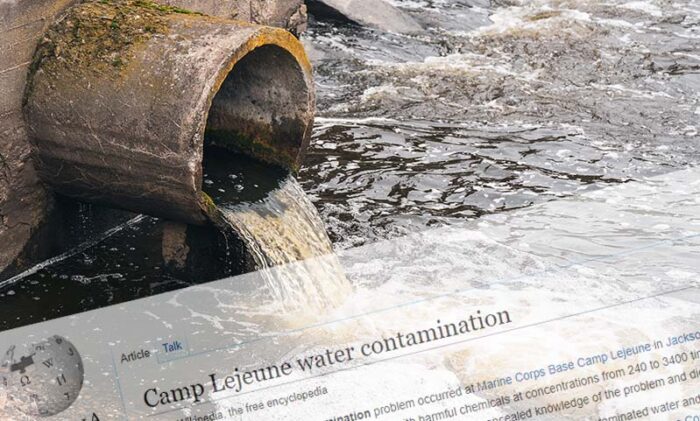
Camp Lejeune is a United States Marine Corps base near Jacksonville, North Carolina. It was founded in 1941 and has served an important part in the military history of the United States. However, Camp Lejeune has recently made headlines for another reason.
For more than three decades, the base’s water supply was poisoned with numerous chemicals, producing a variety of health issues for Marines and their families. The Camp Lejeune Lawsuit has been ongoing for years, with many calling for accountability and compensation.
As reported by AboutLawsuits, this year, the U.S. government and plaintiffs’ lawyers have filed a motion requesting coordinated management of the Camp Lejeune lawsuits to prevent duplicate pretrial proceedings and conflicting rulings. They have proposed consolidating the cases before a single judge, akin to multidistrict litigation (MDL).
The case highlights the intersection of national security and environmental health. In this article, we will explore the same and the lessons learned from the ongoing Camp Lejeune Lawsuit.
The Military and Environmental Health

The military has always had a complicated relationship with environmental health. While the government and the military are responsible for protecting the nation’s security, they also have a duty to protect the health of their personnel and the environment.
Unfortunately, in the case of Camp Lejeune, this is not always the case.
The contamination of Camp Lejeune’s water supply with chemicals like trichloroethylene (TCE) and perchloroethylene (PCE) has led to various health problems and symptoms of Camp Lejeune water contamination among personnel and their families.
As per TorHoerman Law, these toxic chemicals were used for maintenance and repair activities on the base, highlighting the military’s complicated relationship with environmental health. Despite their responsibility to protect the health of personnel and the environment, incidents like Camp Lejeune show that this duty is not always fulfilled.
The Impact on National Security

National security is paramount for any nation, and the military plays a significant role in ensuring it. The contamination of the water supply at Camp Lejeune not only affected the health of Marines and their families, but it also had an impact on national security.
The Marines stationed at the base were potentially exposed to toxic chemicals, which could have affected their performance and readiness. The contaminated water also impacted the local environment, including groundwater and nearby rivers, which could have had wider implications beyond the base.
In a post shared on the Lawsuit Information Center in February 2024, it was noted that the impact of the Camp Lejeune contamination has spread beyond the confines of the base and affected neighboring communities.
Numerous private wells in the vicinity have been found to be contaminated with TCE and other harmful chemicals, leading to health issues like cancer and other illnesses that could be associated with exposure to these toxic substances, as reported by the affected residents.
The Need for Accountability

The ongoing Camp Lejeune Lawsuit seeks accountability and compensation for the harm caused by the contamination, highlighting the importance of holding the military accountable for their role in environmental health. Although the military has regulations in place for environmental protection, the Camp Lejeune case shows that compliance and enforcement are not always ensured.
According to a post on Top Class Actions, in August 2022, the Biden administration signed the Camp Lejeune Justice Act, enabling affected individuals to seek compensation for their suffering. However, the case also highlights the crucial need for better communication and collaboration between the military and environmental agencies to safeguard both national security and environmental health.
Ultimately, the Camp Lejeune case serves as a stark reminder of the significance of accountability in environmental protection and the severe consequences of neglecting it.
The Importance of Community Involvement

The Camp Lejeune contamination case also underscores the crucial role of community involvement in protecting environmental health. The affected community played a critical role in raising awareness of the contamination and pushing for accountability and compensation for the harm caused.
Community involvement in environmental health is essential as it allows for the identification of potential hazards and risks that may not be immediately apparent to regulators and authorities.
By working with communities, environmental agencies and the military can ensure that their actions and policies are informed by local knowledge and priorities, leading to more effective and sustainable solutions to environmental problems.
Conclusion

The Camp Lejeune contamination case emphasizes the importance of accountability, communication, and compliance with environmental regulations in protecting both national security and environmental health.
The ongoing lawsuit and the Camp Lejeune Justice Act demonstrate the need for justice for those affected by the contamination.
However, it is crucial to learn from this case to prevent similar incidents in the future. By prioritizing both national security and environmental health, we can ensure the well-being of military personnel, their families, and neighboring communities.
















